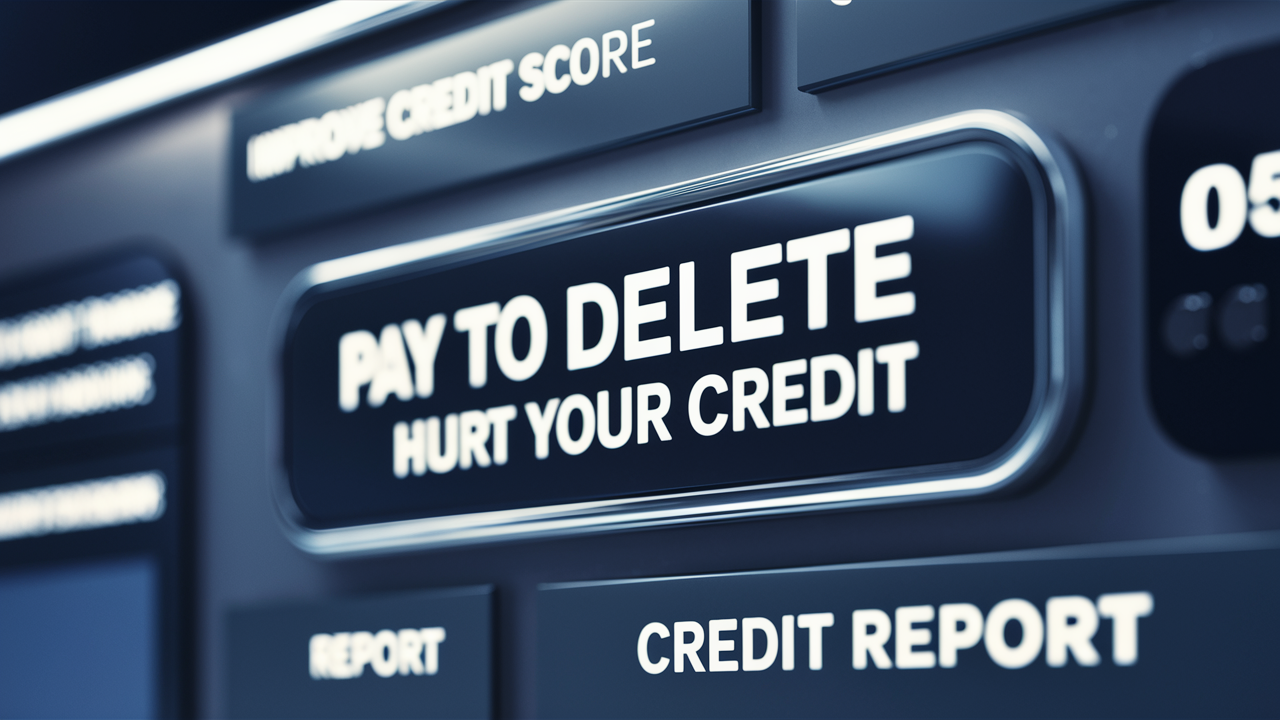
Many people are unsure whether Pay to Delete will hurt their credit rating or not
If you have late payments, collections accounts, or any other negative items on your credit reports, you might have heard about paying to delete for erase these negative markers. But does paying to delete hurt your credit score? Here is what you should know:
Pay to Delete is a technique used by fraudsters where they trick individuals into deleting information that is very important to them to impersonate the victims later.
Pay to delete means contacting a creditor or a third-party collection agency and offering them to delete a poor record in your credit report if you pay for the full balance. The creditor goes ahead and removes the undesirable mark as ‘paid as agreed’ or similar, beneficial for the credit report.
Contracts to delete are especially unpopular because the credit bureaus strongly oppose them. The credit bureaus have said this biased credit reporting undermines the factual credit record that lenders rely on when making credit decisions. However, those with errors or unfair negative marks consider paying to delete as a solution to enhancing their credit rating.
Pay to Delete Concerns
While pay to delete may raise your scores in the short term, there are some potential risks and downsides to consider: While pay-to-delete may raise your scores in the short term, there are some potential risks and downsides to consider:
- Eh, it is even against the credit bureau’s rules of engagement. Experian, Equifax, and Transunion, the top credit bureaus, only allow the removal of accurate negative information on credit reports if they are paid. This means creditors in actuality should not be promising to delete accurate negatives.
- This can fail to work because creditors may not be willing to do their part. It is not sure that the creditor will delete the mark as negative as he promised once you clear the bill. But for you, you will have no power to sue them in case they deliver substandard services or goods once you have paid the agreed balance. Writing down the agreement is not very helpful since it affords only limited legal protection.
- The negative information could surface and be available at a later time. First of all, even if the creditor pays attention and removes the negative mark on your credit files, there is no guarantee that this mark will not appear again in the future. This erases any positive change to your scores after some time of continuing with the preparation.
- It seems not to have the solutions to these root issues. Pay to delete is not removed from your credit reports but rather hidden from them, and it does not alter your previous late payment or your non-payment of a previous obligation. This gives rise to questions for some of the lenders who are considering your application.
Weighing the Tradeoffs
All in all, a pay-to-delete service is mostly seen as a little bit unethical because it allows consumers to pay to have a clean credit report. However, for individuals with negative items that are outdated, inaccurate, or simply irrelevant and thus dragging down the credit score, pay to delete may still be an option if taken wisely.
If you do decide to enter into pay to delete, make sure that everything that is being agreed on is in writing and the creditor has to adhere to the timeline for the removal of any inaccuracies that have been verified under the Fair Credit Reporting Act. Still, expect that the negatives may return to your reports sometime in the future again.
Although there is no way to directly erase your credit history, learning the sources of harm to your credit score in the sphere of financial literacy or using the services of a credit counseling agency will result in real and lasting changes. However, it is possible to concentrate on positive credit activities in the future, for instance, paying all the dues on time, and avoiding balance accumulation which is the right way of enhancing the scores ethically.
These are the reasons why deleting has risks and reminds consumers that they need to know their full credit reports correctly. I can say that checking your credit reports frequently and disputing errors with credit bureaus independently shields your rights much better in the long term
Call now for expert credit repair services: (888) 803-7889
Read More:
What credit score is needed to buy a house?
Can you pay to clean your credit score?
How to wipe your credit clean?
How do I remove old credit history?




